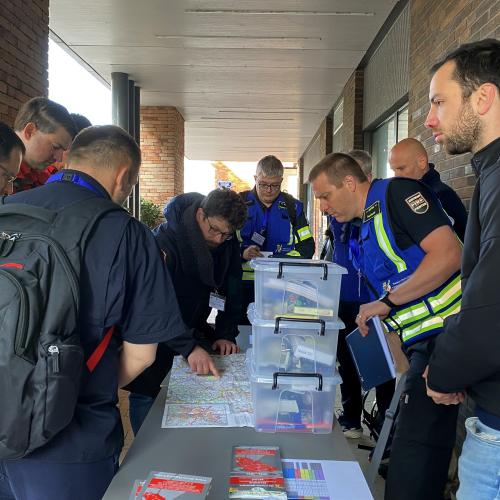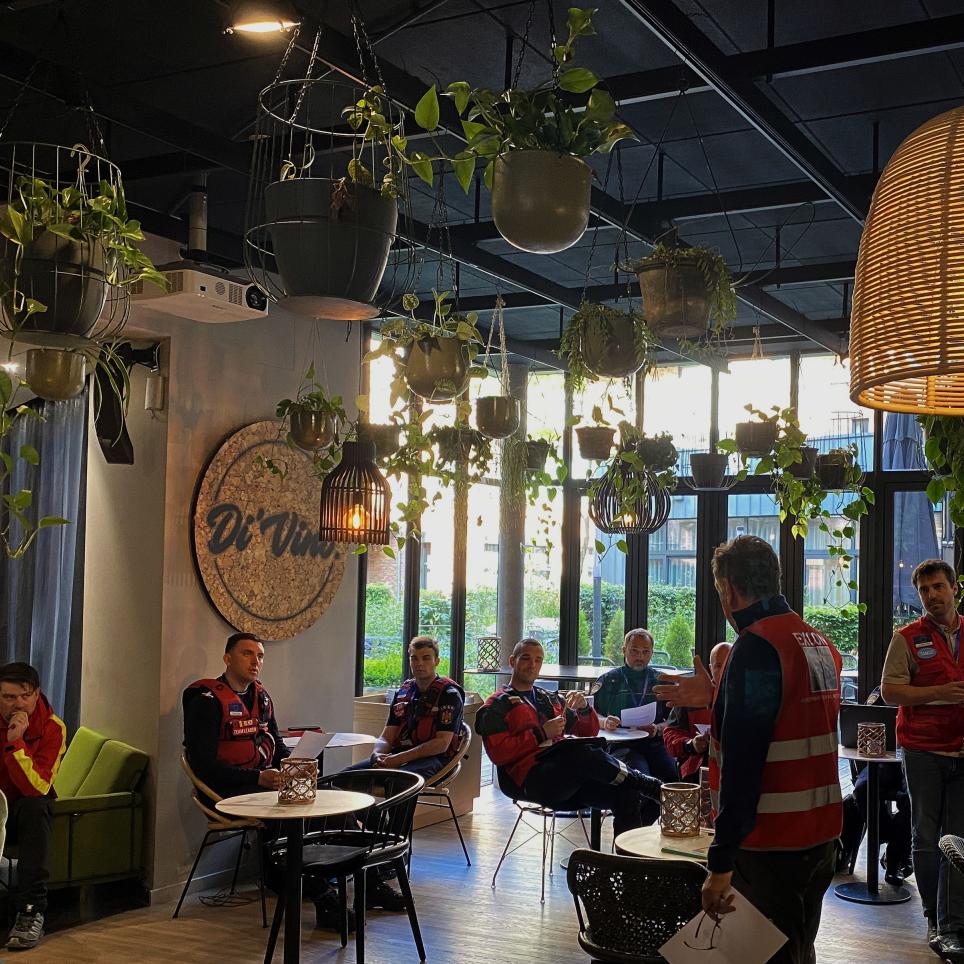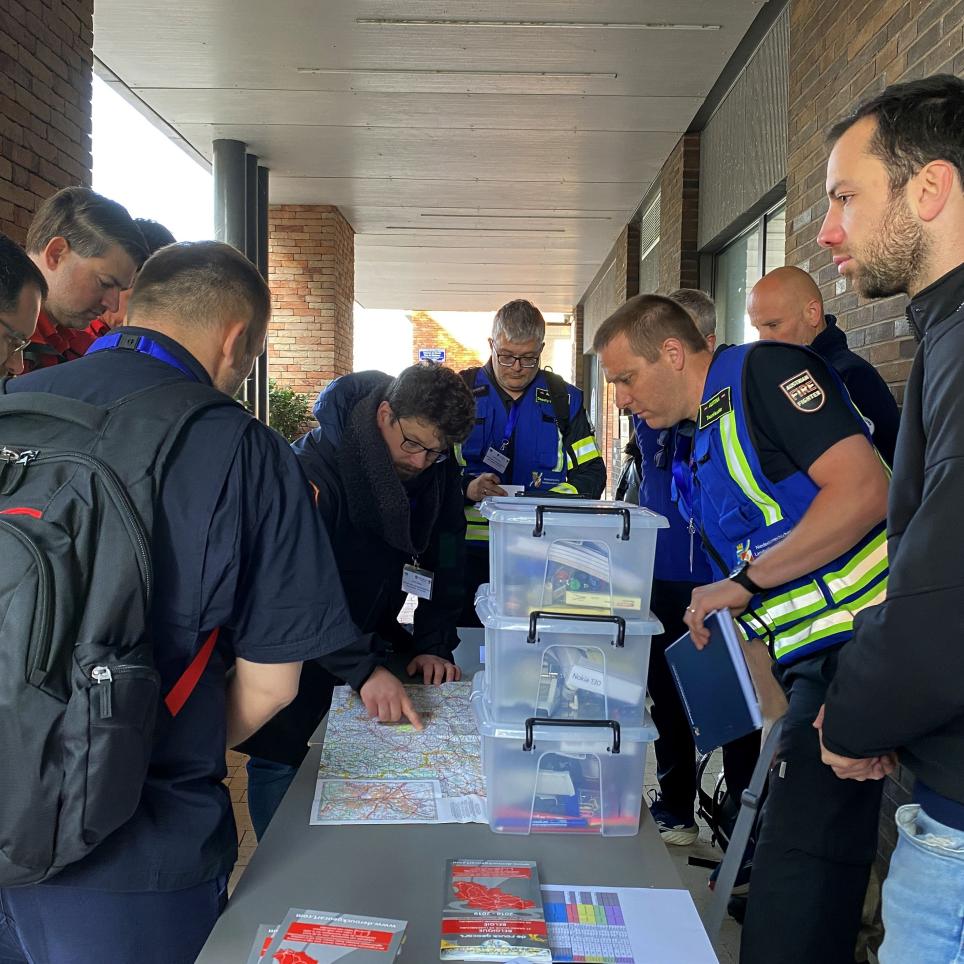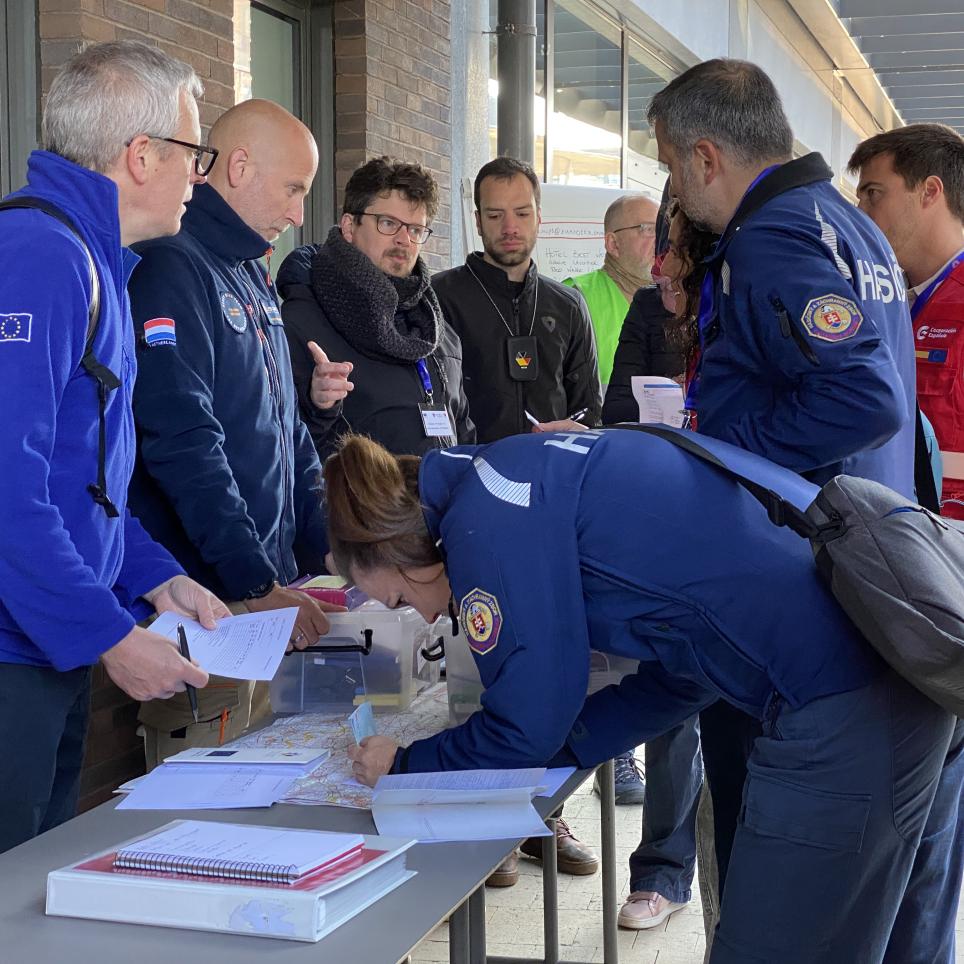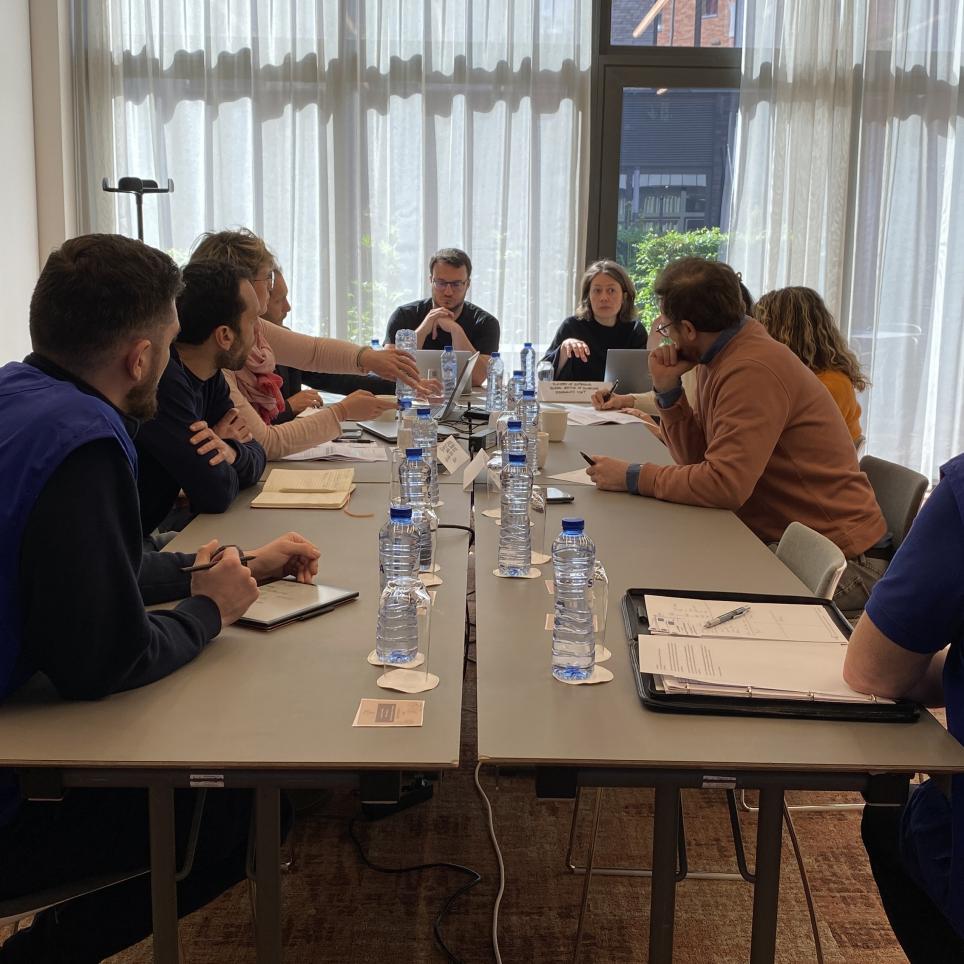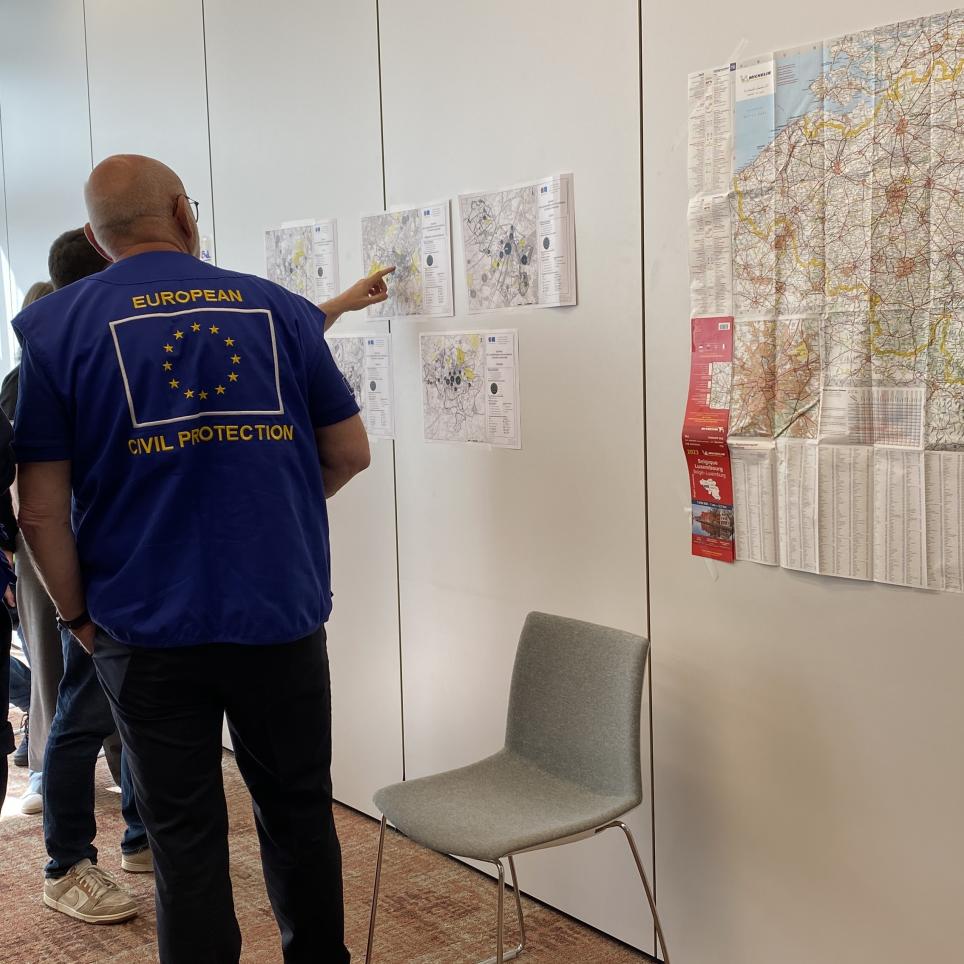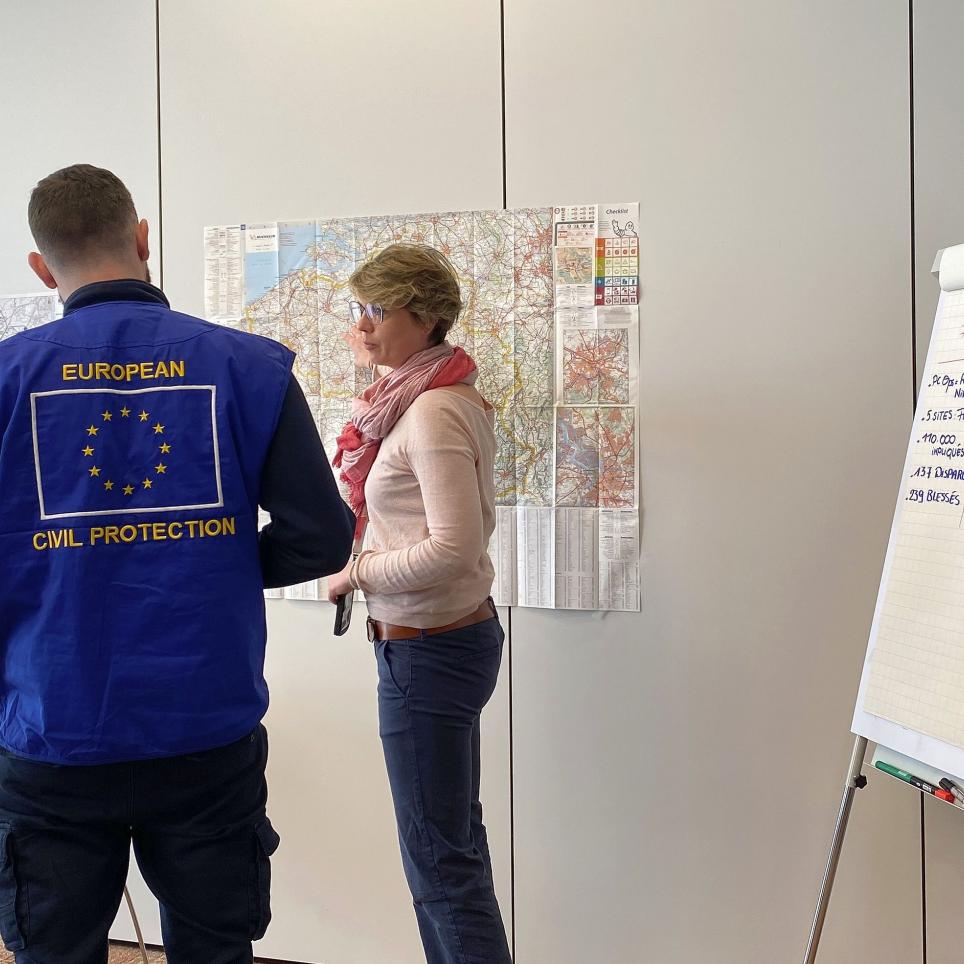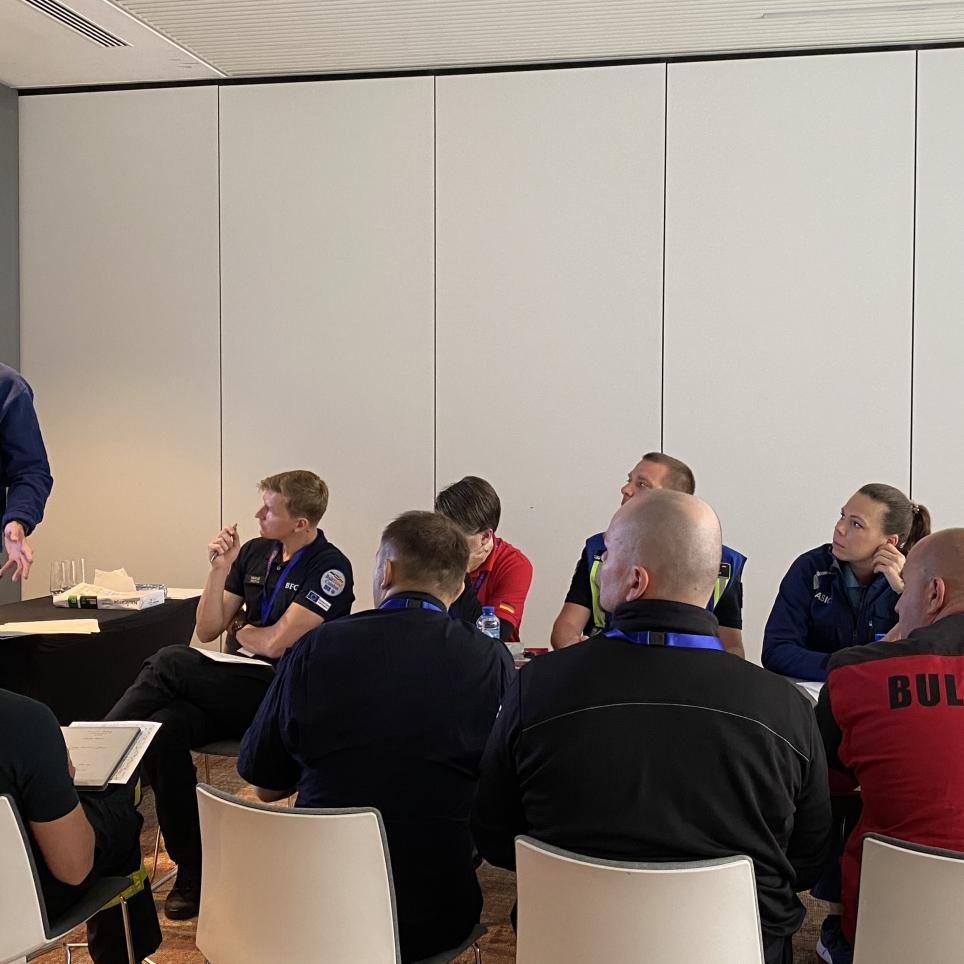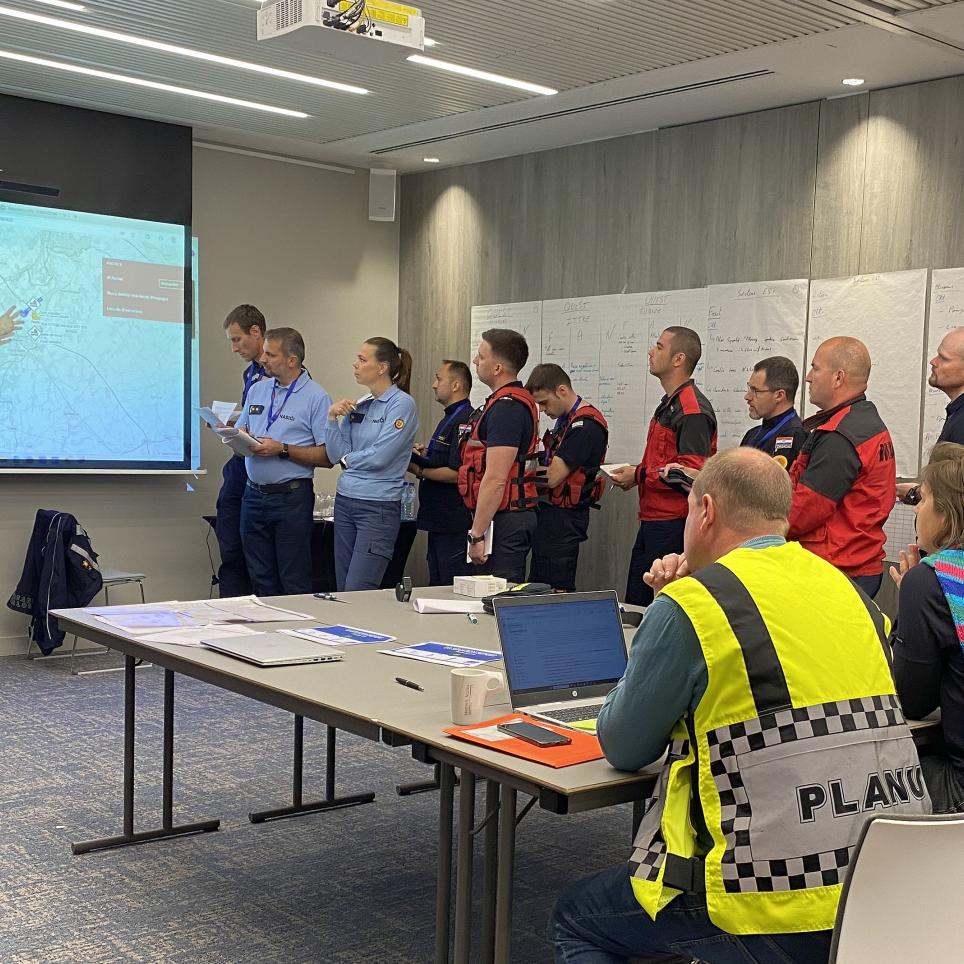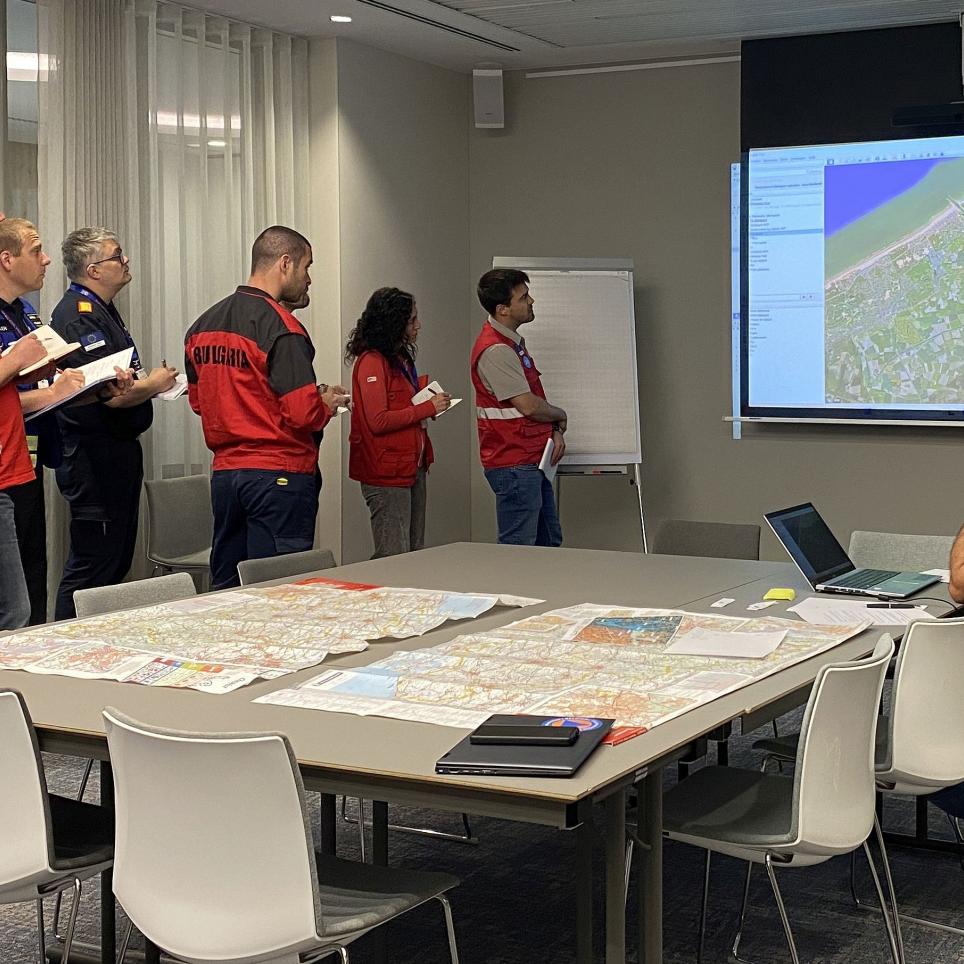The fourth Modules Table-Top Exercise (ModTTX4) took place from 5th to 9th May 2025 in Wavre, Belgium. It was conducted at a hotel in Louvain-la-Neuve and emphasized a flood scenario.
There were 28 participants from 14 different countries comprising of ten Modules Key Personnel teams, an EUCP Team and a TAST who took part in this exercise. Including Exercise Control (EXCON), certifiers, trainers, role players and support staff, about 68 persons were involved in the exercise. It was hosted by the Federal Public Service Home Affairs – Directorate-General for Civil Protection (DGCP-BE), in cooperation with the rest of the consortium, formed of the German Federal Agency for Technical Relief (THW-DE), the Escola Nacional de Bombeiros (ENB-PT), the Administration of the Republic of Slovenia for Civil Protection and Disaster Relief (URSZR-SI), and the Ministry of the Interior of the Republic of Croatia (MUP).
The Modules present were Water Purification (WP) from Spain, Flood Containment (FC) from the Slovak Republic, Remotely Piloted Aircraft System (RPAS) from Croatia, Flood Rescue using Boats (FRB) from Germany and Austria, High Capacity Pumping (HCP) from Bulgaria, Finland, Romania, France, and Balt Flood Combat with representatives from Lithuania and Estonia. The EUCPT consisted of six members and was supported by a two-person TAST from the Netherlands.
During the exercise the participants had the opportunity to coordinate and conduct a real VIP visit as part of the scenario. The Civil Protection DG of Belgium joined in on one of the exercise days and received a briefing by the modules and EUCPT on the current situation, as well as received an overview on the available capacities that were supporting the disaster areas (in the exercise scenario).
The scenario was major flooding initially in the province of Walloon Brabant and later further flooding in the province of West Flanders, prompting a redeployment on the third exercise day. Belgium experienced several days of torrential rain. The soils, already saturated after an abnormally wet April, could no longer absorb the water. In just a few hours, the country's main rivers overflowed their banks, causing flooding on an unprecedented scale. Since the storms affected many different areas of the entire country and all resources at all levels were engaged due to ongoing floods and landslides across the country, the Belgian government requested international assistance from the European Union Civil Protection Mechanism.
